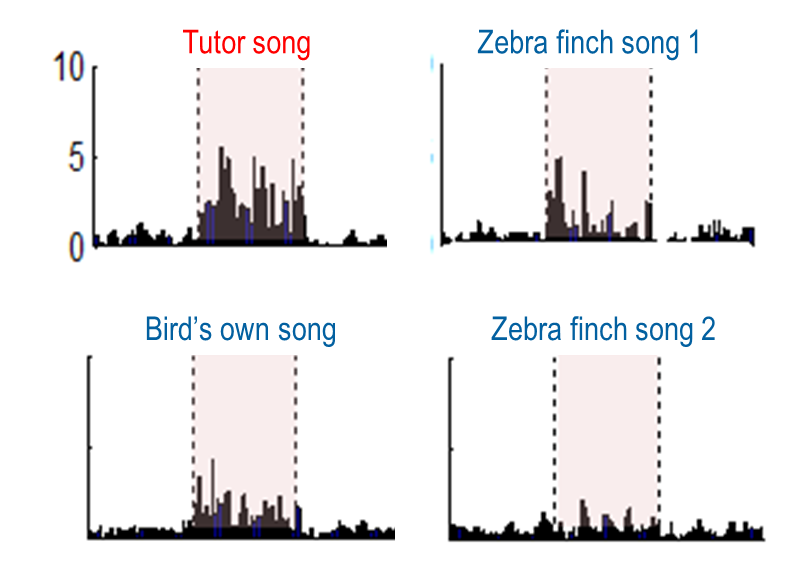FY2012 Annual Report
Neuronal Mechanism for Critical Period Unit
Assistant Professor Yoko Yazaki-Sugiyama
Abstract
After a few months of setting up our lab, in FY2012 our research unit started and worked on the following scientific projects:
- finding the neuronal basis for making a memory of auditory experiences in juvenile period.
- elucidating how the auditory information is processed in birds’ brain.
To pursue these projects, we imported new viral techniques to songbird by collaborating with other universities, in addition to employing other existing physiological/behavioral techniques. Though still in the process of setting up, we are expecting to have many outcomes appear in the following years.
1. Staff
- Makoto Araki, Researcher
- Christian Flecke, Researcher
- Aryesh Mukherjee, Researcher
- Michiko Arai, Technical Staff
- Sachiko Blanck, Administrative Assistant
2. Collaborations
Theme: Applying the viral vector method to song bird modeling
- Prof Michael Lazarus
- International Institute for Integrative, Sleep Medicine (WPI-IIIS), University of Tsukuba
3. Activities and Findings
Like humans learning to speak song birds learn to sing during development by hearing their tutor song. One of the song bird zebra finches hear their father song after hatching and memorize during in the sensory learning period. In the following (with a large overlap) sensory-motor learning period birds start to sing and match their own vocal to memorized tutor song, which results in acquiring their own adult song.

Figure 1: Time line of zebra finch song learning
The brain areas which are necessary for song producing and learning are well identified as ‘song systems as well as the correlated auditory areas which are homologues to mammalian auditory/auditory associate cortex. By focusing on these auditory areas we are trying to find 1) the auditory memory place for storing the tutor memory and 2) the way neurons can be selective to the specific auditory experiences. We found the candidate brain area for tutor memory storage for which we further confirming by applying the new techniques.
 is
is
Figure 2: Spike histgram of neurons in auditory areas during a various series of auditory stimulation.
4. Publications
Nothing to report
4.3 Oral and Poster Presentations
- "Neurobiology for information processing" at Okinawa Computational Neuroscience Course (OCNC), OIST workshop, Yoko Yazaki-Sugiyama
- "Plasticity in the critical period" at Developmental Neurobiology Course (DNC), OIST workshop, Yoko Yazaki-Sugiyama
5. Intellectual Property Rights and Other Specific Achievements
Nothing to report
6. Meetings and Events
6.1 Seminar
Date: February 18, 2012
- Venue: OIST Campus Lab1
- Speaker: Dr. Kazuhiro Wada (Hokkaido University)



